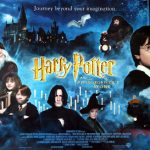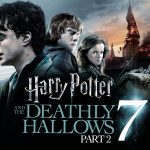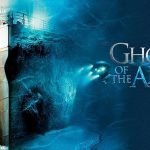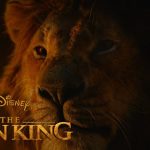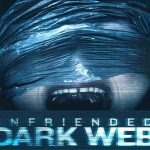🎬 THE DARK KNIGHT (2008)
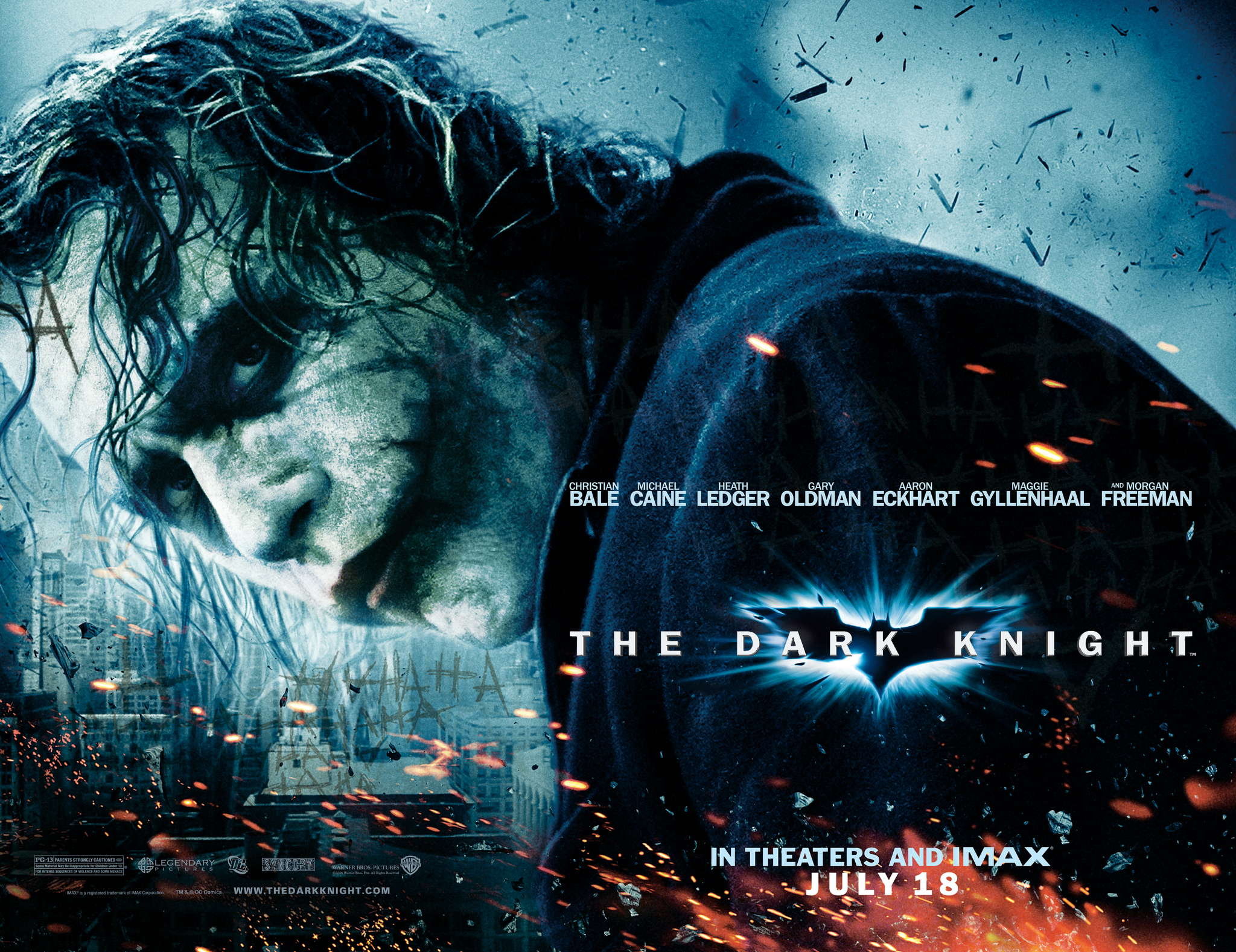
The Dark Knight (2008): A Masterpiece of Superhero Cinema and Psychological Drama
Introduction
The Dark Knight, directed by Christopher Nolan, is a landmark in both superhero films and cinema at large. Released in 2008 as the second installment of Nolan’s Dark Knight trilogy, the film stars Christian Bale as Bruce Wayne/Batman, alongside an all-star cast that includes Heath Ledger, Aaron Eckhart, Michael Caine, Gary Oldman, and Morgan Freeman. Its innovative blend of intense action, moral complexity, and psychological depth elevated the genre to new heights and garnered both critical acclaim and commercial success.
Plot Summary
The film begins in Gotham City, where organized crime still holds sway despite Batman’s efforts to bring justice. With the support of Lieutenant Jim Gordon (Gary Oldman) and new District Attorney Harvey Dent (Aaron Eckhart), Batman’s crusade against crime appears promising. However, a new and unpredictable threat emerges in the form of the Joker (Heath Ledger), a criminal mastermind with a warped sense of humor and a complete disregard for human life.
The Joker initiates a series of escalating attacks on Gotham, creating chaos and forcing Batman into a deadly moral conflict. The Joker’s aim is not simply to defeat Batman physically but to push him into ethical dilemmas that challenge his moral code and the limits of his resolve. Meanwhile, Dent’s pursuit of justice is tested as he becomes a tragic figure, ultimately morphing into the villain Two-Face after a horrific accident orchestrated by the Joker.
As the story unfolds, Batman is forced to make difficult choices that blur the lines between hero and vigilante, questioning whether his unyielding principles are a strength or a weakness.
Themes and Philosophical Depth
The Dark Knight delves into complex themes that elevate it beyond the typical superhero narrative. At its core, the film is a study of duality, chaos, and the psychological battle between order and anarchy. Batman and the Joker serve as symbolic opposites: Batman, an agent of order and justice bound by his no-kill rule, and the Joker, a nihilistic force bent on dismantling societal rules and exposing the fragility of moral codes.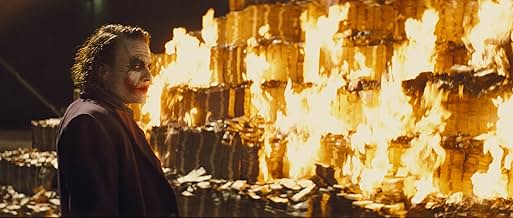
The character of Harvey Dent embodies the tragedy of a “fallen hero.” His transformation into Two-Face represents the devastating effects of trauma and the unpredictable consequences of absolute moral convictions. Dent’s arc emphasizes the thin line between hero and villain, illustrating how good intentions can be corrupted under the weight of personal loss and betrayal.
The Joker’s anarchic philosophy introduces the idea that chaos and unpredictability are inherent parts of human nature, questioning society’s reliance on laws and order. His goal is to show Gotham’s citizens — and Batman himself — that beneath their civility lies a potential for violence and self-preservation. This theme is exemplified in the film’s climactic “social experiment,” where the Joker pits two ferries, each carrying citizens and convicts, against each other, attempting to prove that fear and survival instinct will overcome empathy and reason.
Heath Ledger’s Iconic Performance as the Joker
One of the film’s most celebrated aspects is Heath Ledger’s portrayal of the Joker. Ledger’s performance is widely considered one of the greatest in cinema history, bringing to life a villain who is at once terrifying, captivating, and eerily humorous. His Joker is a chaotic force, lacking any clear motives beyond his desire to break down Batman and expose humanity’s inherent flaws. Ledger’s dedication to the role, including his commitment to a dark and immersive preparation process, resulted in a portrayal that redefined the Joker as a character. Ledger posthumously won the Academy Award for Best Supporting Actor for his performance, a testament to his profound impact on the film and its lasting legacy.
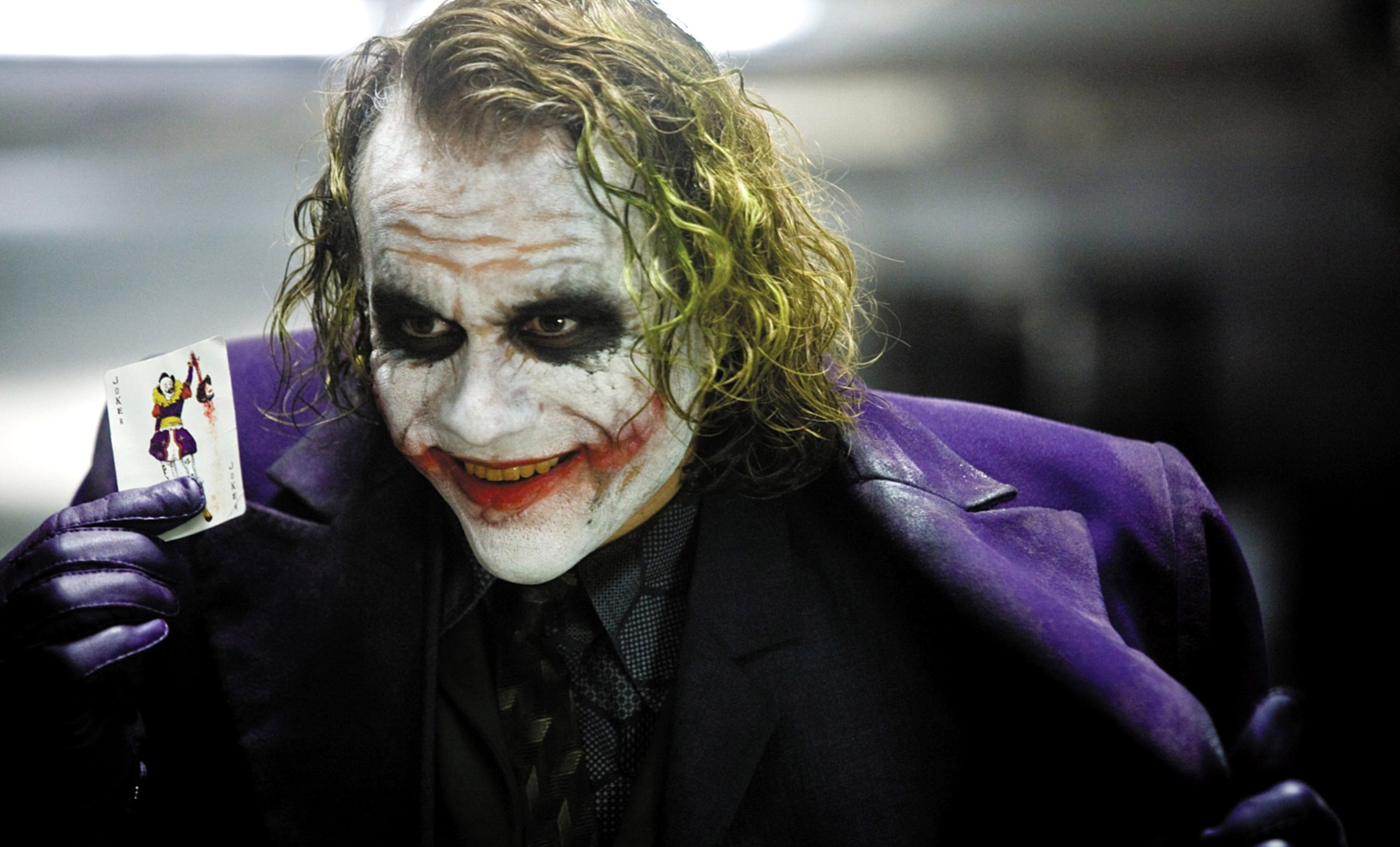
Visual Style and Cinematography
The Dark Knight is also celebrated for its impressive cinematography, with many sequences filmed in IMAX, bringing unprecedented clarity and scale to the action scenes. Wally Pfister’s cinematography combines a gritty realism with an epic scope that captures both the sprawling cityscapes of Gotham and the intense, claustrophobic nature of the characters’ conflicts. Notably, scenes like the opening bank heist and the climactic showdown in Gotham’s skyscrapers are meticulously crafted to reflect both the film’s dark tone and its thrilling momentum.
Hans Zimmer and James Newton Howard’s Score
The musical score, composed by Hans Zimmer and James Newton Howard, enhances the film’s intense atmosphere. The music captures the tension and urgency that define Gotham’s descent into chaos, with Zimmer’s dissonant, unsettling Joker theme providing a visceral sense of dread. The music underscores each character’s internal struggles, from Batman’s commitment to Gotham to the Joker’s relentless taunting, adding emotional weight to the film’s high-stakes action.
Critical Reception and Cultural Impact
The Dark Knight was a massive commercial success, grossing over $1 billion worldwide and becoming one of the highest-grossing films of all time. Critics praised Nolan’s approach to the genre, blending psychological complexity with action-packed sequences and thought-provoking themes. Many noted that the film redefined what a superhero movie could be, merging blockbuster entertainment with a sophisticated examination of human nature.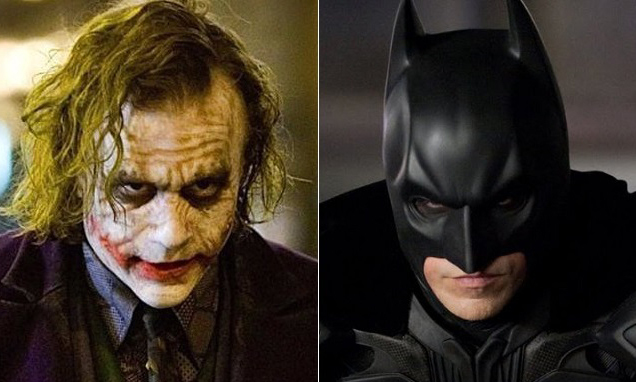
The film’s influence has extended well beyond the superhero genre. The Dark Knight played a significant role in shaping modern cinema, demonstrating that blockbuster films could tackle serious themes and ethical questions while still appealing to mainstream audiences. It also contributed to discussions about mental health, moral ambiguity, and societal fears, resonating with audiences who saw parallels between Gotham’s struggles and real-world challenges.
In terms of industry impact, The Dark Knight sparked debates about the Academy Awards’ nomination process after failing to receive a Best Picture nomination despite widespread critical acclaim. This backlash ultimately led to an expansion of the Best Picture category to include up to ten nominees, aiming to recognize a broader range of films.
Conclusion
The Dark Knight is a monumental achievement in film that transcends its genre, offering audiences a riveting story that explores the darker facets of heroism and the human psyche. With its compelling narrative, exceptional performances, and profound themes, it continues to be regarded as one of the greatest films of the 21st century. By challenging the boundaries of superhero cinema, The Dark Knight has left a lasting legacy, not only within the DC franchise but also in the broader landscape of filmmaking. It remains a touchstone for exploring the dualities of good and evil, order and chaos, heroism and corruption.
